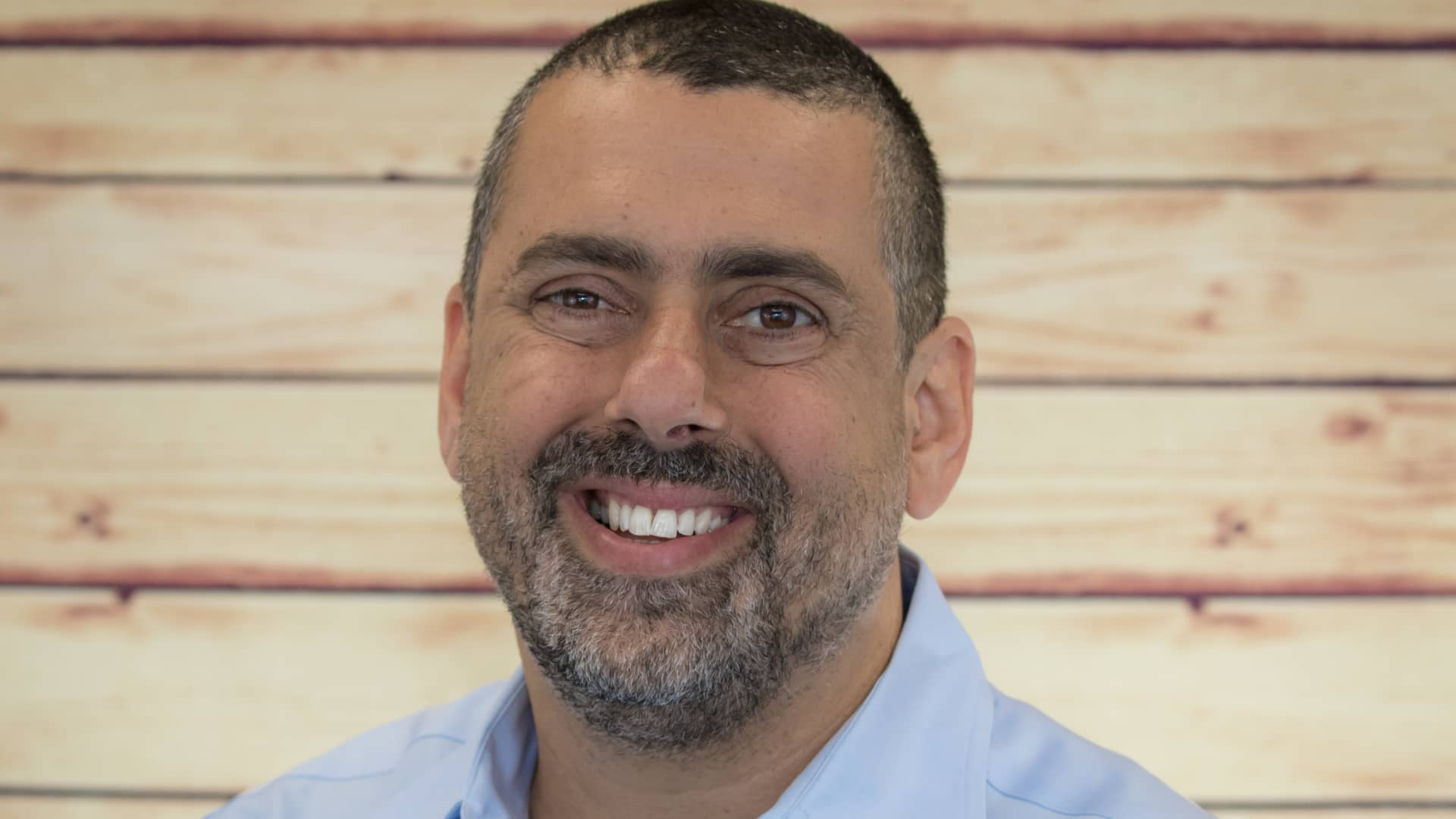
- LiveU launched at a crucial time, as both traditional broadcasters and online media outlets provided a fast-growing demand for cellular-based live video transmission.
- While certainly improving stand-alone broadcasting events, LiveU's technology helped bring "newsgathering into the internet age," Ronen Artman, vice president of marketing at LiveU, described in a company blog post.
- LiveU clients now include global broadcasters and news agencies, as well as NASA, American Airlines and Amazon, with its products being behind the coverage of some of the most trafficked live broadcasted events.

In this weekly series, CNBC takes a look at companies that made the inaugural Disruptor 50 list, 10 years later.
In 2006, after attending a soccer game with a bulky, unimpressive production setup, LiveU founders Avi Cohen, Samuel Wasserman, and Rony Ohayon were inspired to create a product that would consolidate video production materials, making live video broadcasting a smoother and simpler process.
We're making it easier for you to find stories that matter with our new newsletter — The 4Front. Sign up here and get news that is important for you to your inbox.
In its first year, the Israel-based startup's demo hardware, which was only half the size of a laptop, and claimed to reliably and cheaply deliver up to 2 MB per second, impressed investors.
And so did their mission — to use existing cellular, Wi-Fi, and WiMAX signals to transmit live video and provide a more reliable and affordable alternative to television news satellite transmission trucks.
LiveU launched at a crucial time, as both traditional broadcasters and online outlets provided a fast-growing demand for cellular-based live video transmission. Not only were television broadcasters being held to higher standards of both quality and turnaround time, but mass streaming services, like YouTube and Justin.tv (now Twitch), were gaining mainstream popularity, and creating a demand for online video consumption and livestreaming. That promise led to a combined $23 million in series A-C funding.
Money Report
And LiveU was ready to meet that demand. By 2012, due to its evolving technology, the company had become the go-to for many companies looking to uplink HD video while on the field, including BBC and NBC. That same year, the company raised another $27,000,000 in Series D funding.
This marked a turning point for the company, as it moved beyond its roots in hardware, specifically its 3G/4G LTE backpack that hooked up to a video camera to let a producer transmit high-quality video streams in real time, instead focusing on being a solutions-based company.
One of these solutions was LiveU Solo, which allowed users to livestream from professional cameras directly onto platforms like YouTube Live and Facebook.
But ultimately, LiveU made the greatest disruption within news broadcasting.
While certainly improving stand-alone broadcasting events, like the soccer games that first inspired the company, LiveU's technology helped bring "newsgathering into the internet age," Ronen Artman, vice president of marketing at LiveU, described in a company blog post.
LiveU's technology allowed journalists and broadcasters to get close to the action – and stream it instantaneously.
ABC News President James Goldston, in a memo to staffers in 2014, directly accredited its evolution for news broadcasters to LiveU — "From the streets of Ferguson to the Pope's daily mass, everyone at ABC News now has the ability, using the app LiveU on their mobile devices, to live stream what's happening on the ground across our digital, broadcast, and Apple TV platforms at anytime from anywhere."
LiveU found a promising niche within political news, as networks increasingly relied on LiveU technology to broadcast elections globally, including the 2016 and 2020 U.S. elections.
That growth helped put it in the spotlight for private equity firmIn 2019 Francisco Partners, a global technology-focused private equity firm, together with co-investor IGP Capital, acquired LiveU for $200 million.
Then 25 months later in TK, LiveU was acquired by the Carlyle Group for $400 million.
A near doubling of its valuation in less than two years pointed not only to the increased sophistication of its solutions but also to the surge in demand for live video content that continued to grow alongside the internet.
This demand was then dramatically intensified by the Covid-19 pandemic, as important events like weddings, graduations, and sporting events were forced to be attended virtually. And it was particularly those large, heavily trafficked, events that required new streaming sophistication.
Because of this, LiveU's new product evolutions have been focused on disrupting sports much like it did the broadcast news industry.
In 2020, during the Tokyo Olympic games, which were unable to have a live audience, LiveU allowed for a deeply intimate streaming experience, covering not only the main events, "but also letting viewers experience so many other moments – athletes' reactions after the finish, fans watching outside the stadiums, coaches' feedback in the locker rooms and the medal ceremonies," according to CEO Samuel Wasserman.
"With the growing demand for live content, our solutions help to build a bridge between the athletes and viewers worldwide, delivering the full sports experience," he continued.
LiveU clients now include global broadcasters and news agencies, as well as NASA, American Airlines and Amazon, with its products being behind the coverage of some of the most trafficked live broadcasted events, such as the U.S. Presidential Election, the FIFA World Cup, Winter and Summer Olympic Games, and the Super Bowl.
Earlier this year, LiveU set its ambitions on the cloud, launching a solution for automatic recording and metadata tagging of live video, further following the evolution of LiveU from a hardware alternative to satellite trucks to a end-to-end video contribution, production and distribution solution.
Sign up for our weekly, original newsletter that goes beyond the annual Disruptor 50 list, offering a closer look at list-making companies and their innovative founders.






